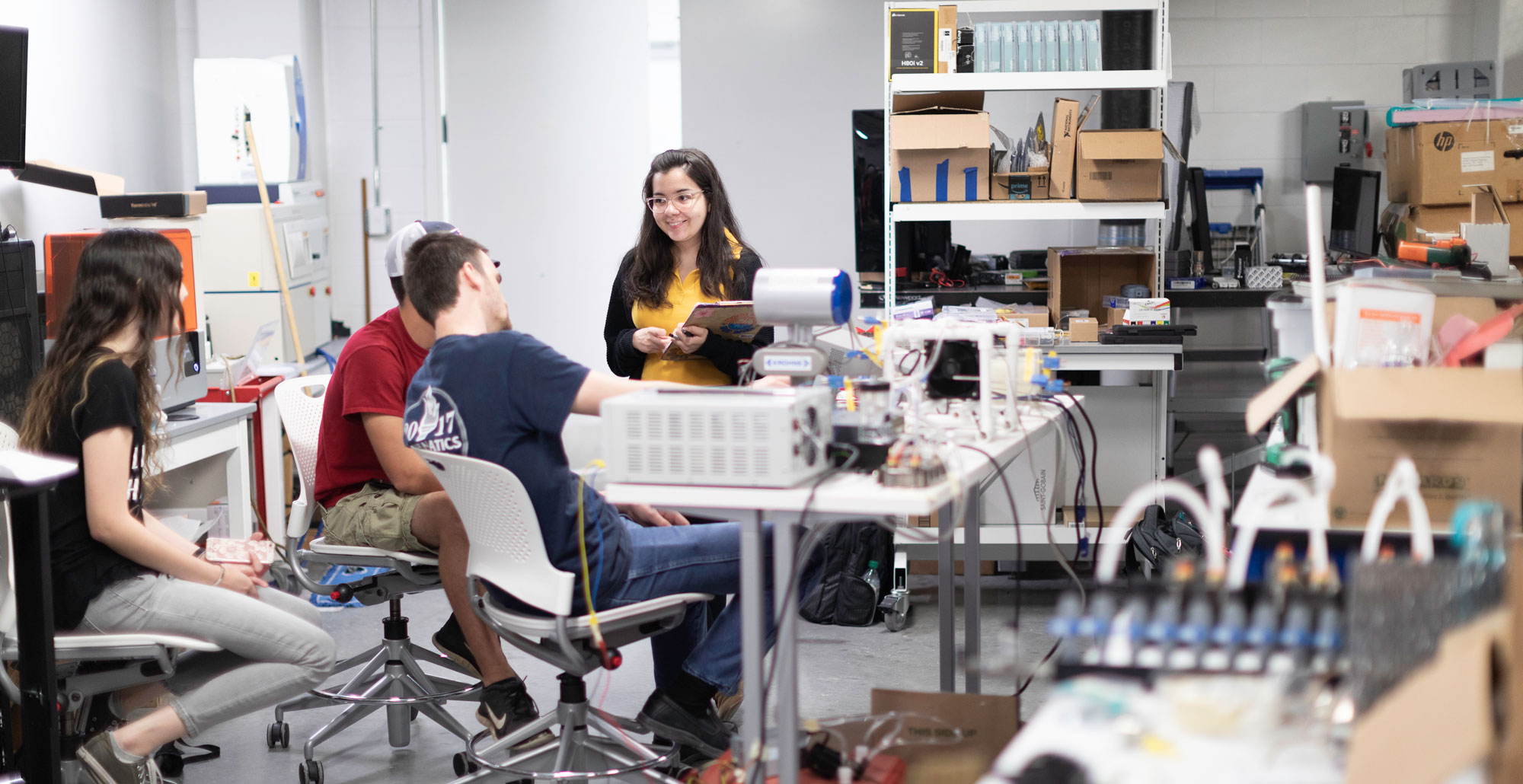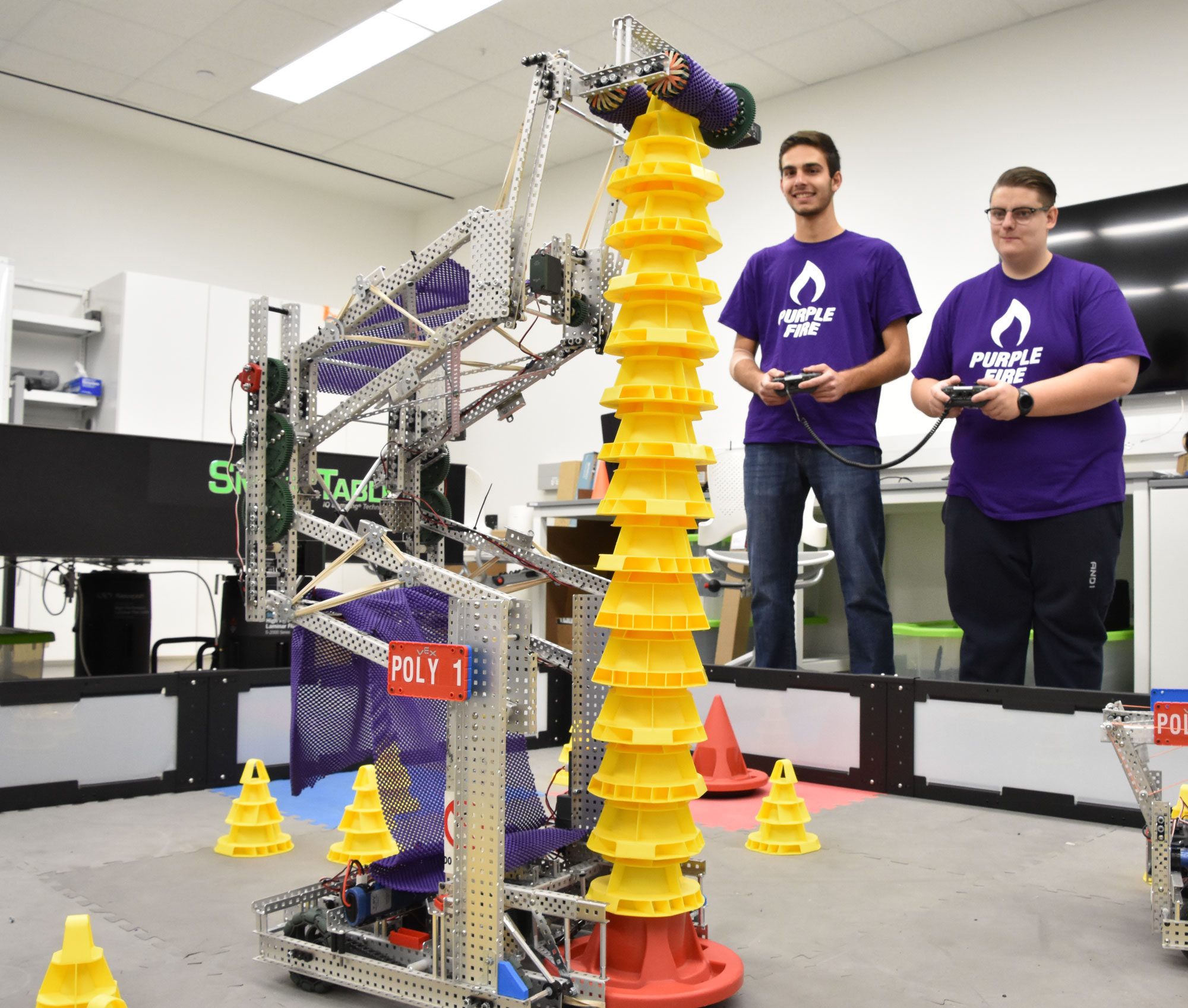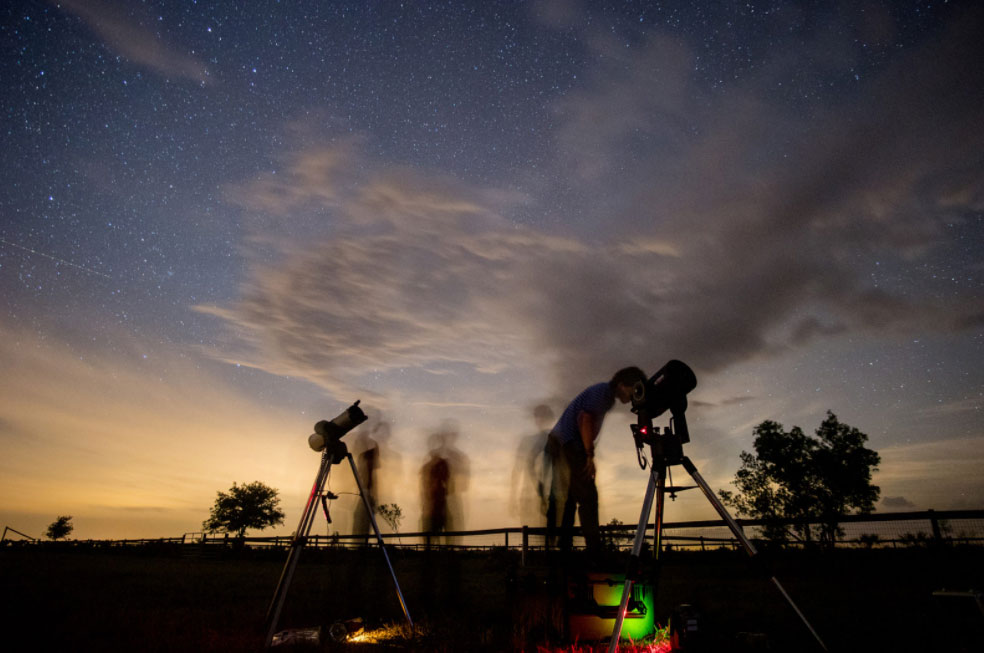
The B.S. in Mechanical Engineering combines quantitative, design and technical knowledge with hands-on skill in preparation for one of the world’s most versatile and in-demand professions. From nano-scaled innovations in medicine to the future of space flight, mechanical engineers design the future.
Nearly every change in business, science and engineering involves mechanical engineers. The job is highly individualistic and flexible because it is so broad. That means job security and professional challenge for those willing to keep their knowledge and skills fresh and relevant.
The Bachelor of Science in Mechanical Engineering degree program is designed to provide a synergetic foundation in the discipline of Mechanical Engineering through broad educational experience. The program offers concentrations in Aerospace, Energy, Materials and Advanced Manufacturing, Robotics, Automotive, Operations Research, Simulations, and Advanced Topics. The program seeks to inoculate an understanding of the fundamental principles of science and engineering by providing students with experiences in our hallmark design sequence with project-based learning activities and applied research opportunities.

Graduates are expected to be prepared with a solid academic foundation and professional skills that are essential in today’s workforce with the diversity and ever-evolving role of mechanical engineers. Graduates are expected to attain the following within a few years of graduation.
Upon completion of the mechanical engineering degree program, students will attain the following outcomes to be ready to enter professional practice of engineering.
Meet the Faculty
Students can design their own four-course concentration within the major based on their personal academic and professional pursuits. This unique combination of courses works in concert with other co- and extra-curricular activities, including research experiences, internships, and a wide variety of opportunities in our student organizations. Advanced Topics offers the student the flexibility in curriculum choices to grow with their changing interests as they look forward to graduation, graduate school, and their professional endeavors.
Aerospace focuses on industries in which engineers design or build aircraft, missiles, and systems for national defense, or spacecraft. Complementing your general mechanical engineering principles, you study subjects such as propulsion, stability and control, structures, mechanics, and aerodynamics, which is the study of how air interacts with moving objects. As you look forward, this provides you with additional courses to pursue career options at aerospace companies like NASA, Lockheed Martin, Northrup Grumman, Draken, etc., and may spark an interest in undergraduate research and advanced study in graduate school
Students engage in in-depth study of automotive engineering principles, focusing on vehicle design, propulsion systems, and advanced technologies. They gain hands-on experience through projects, learning to optimize vehicle performance, safety, and efficiency.
Energy in mechanical engineering is the study and application of thermal, electrical, and kinetic energy in the design and operation of mechanical systems. Energy-related projects undertaken by mechanical engineering students include the design of energy-efficient structures, the development of renewable energy systems such as wind and solar power, and the improvement of the energy efficiency of industrial equipment and machinery.
The field of materials and advanced manufacturing focuses on engineering composite materials with unique capabilities that improve safety, efficiency, and versatility. The design of new smart materials and systems has major implications for the defense, aerospace, energy, and semiconductor industries. This concentration will give you a strong foundation in the fabrication, characterization, modeling, and prototyping of such materials.
Operations research focuses on modeling and solving operation efficiency challenges, and predicting and demonstrating value-added gains like cost savings. Professionals with expertise in this field are often found in environments with complex operations like ports and shipyards, where they are responsible for managing and improving traffic flow. If you like solving workflow problems and designing efficient systems, then this is the concentration for you.
Through focused coursework, students delve into robotics principles, learning about sensors, actuators, control systems, and artificial intelligence. They gain hands-on experience by designing and programming robotic prototypes, honing their skills in solving real-world challenges. The curriculum covers areas like robot kinematics, computer vision, and human-robot interaction.
Simulation in mechanical engineering is the modeling and analysis of the behavior of mechanical systems using computer software. Students of mechanical engineering focus on simulation-related challenges by studying simulation concepts and using software to develop and analyze models of mechanical systems.
We have an active student organization community with more than 35 clubs that vary based on specific academic interests, professional development, and activities just for fun.

Purple Fire Robotics

Mechanical Engineering in the News